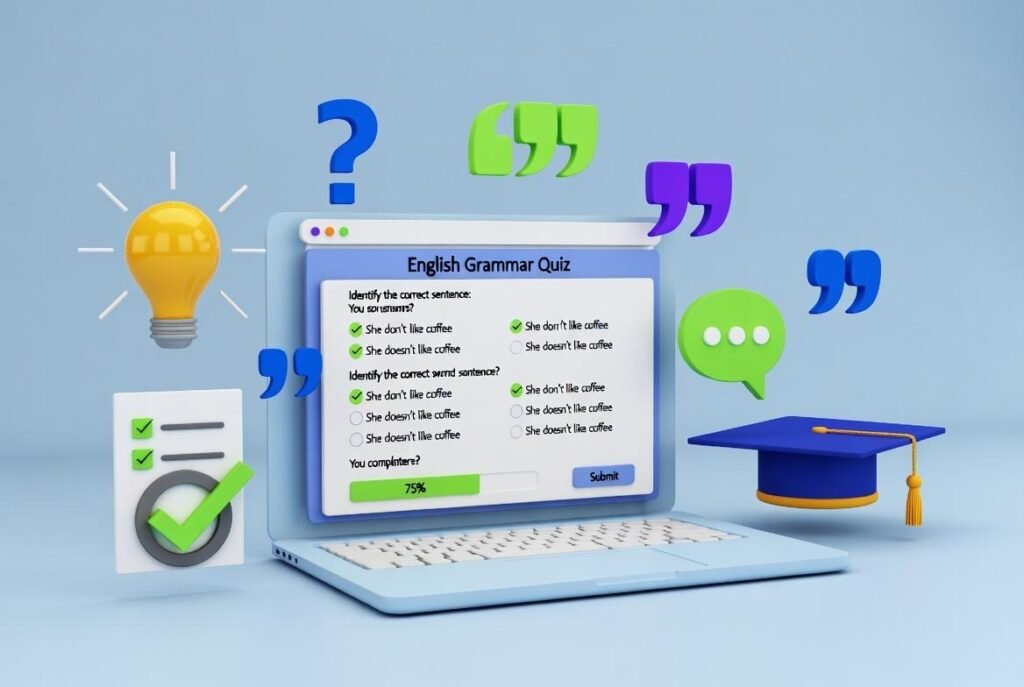The past perfect tense is often introduced as a simple structure—had + past participle—yet it remains one of the most misused verb forms in English. The difficulty does not lie in memorizing the formula. It lies in understanding time relationships. This tense exists to clarify which past action happened first when two events are connected.
When used correctly, it removes ambiguity. When used incorrectly, it either sounds unnatural or creates confusion. Many learners rely on mechanical rules instead of logical sequencing. As a result, they either overuse the tense to sound advanced or avoid it entirely. A clear understanding of how and why it works transforms it from a grammar challenge into a practical communication tool.
Understanding the Past Perfect Tense and Its Common Errors
To understand the past perfect tense, it is necessary to focus on function rather than form. The tense describes an earlier past action that occurred before another past moment. The structure itself is consistent: had + past participle. The complexity comes from choosing when to apply it.
Consider this example:
- When I arrived, they had left.
Two past actions appear. Arrival happened second. Leaving happened first. The earlier action takes the past perfect.
Many errors occur because learners fail to identify this sequence. They often assume the tense signals something “older” or “more formal,” which leads to unnecessary use.
A frequent mistake is applying past perfect when there is only one past action:
- I had visited Rome last year.
There is no second reference point, so simple past is correct:
- I visited Rome last year.
Another issue arises when context is incomplete. A sentence such as “She had finished” feels unfinished unless the reader understands what it finished before. The tense almost always implies a comparison between two moments in the past. Without that comparison, the sentence lacks clarity.
Confusion with present perfect also causes problems. Present perfect connects past events to the present. Past perfect connects past events to other past events. The distinction is subtle but essential. Misunderstanding this relationship results in tense shifts that distort meaning.
The table below clarifies the functional differences between related tenses:
| Tense Type | Time Relationship | Example Sentence |
| Simple Past | Completed action in the past | She finished her report yesterday. |
| Present Perfect | Past action connected to present | She has finished her report. |
| Past Perfect | Earlier action before another past action | She had finished her report before the meeting. |
This structural comparison highlights that past perfect is not about complexity. It is about sequence.
Misusing Past Perfect in English in Everyday Communication
The misuse of past perfect in English often appears in storytelling. Learners sometimes insert it into every sentence of a narrative, believing consistency equals correctness. In reality, native speakers use it selectively.
Take a simple narrative:
- I woke up, ate breakfast, and left the house.
All actions follow natural chronological order. There is no need for past perfect because the sequence is already clear. Adding it creates unnecessary repetition:
- I had woken up, had eaten breakfast, and had left the house.
This version sounds unnatural because no comparison point requires emphasis.
Past perfect becomes useful when the sequence is disrupted. For example:
- I left the house, but I realized I had forgotten my keys.
The act of forgetting occurred before leaving. Without past perfect, the timing would be unclear.
Another common mistake occurs when learners omit the tense even though the timeline demands it. Consider the sentence:
- When we arrived, the concert started.
This implies both actions happened simultaneously. If the intention is to show the concert began earlier, the correct version is:
- When we arrived, the concert had started.
The difference may seem small, but it changes the entire meaning.
Signal expressions such as “by the time” or “already” frequently indicate the need for past perfect. However, words like “after” or “before” do not always require it because they already establish order. Overusing the tense in these situations makes speech sound forced rather than precise.
Challenges When Mastering the Past Perfect Tense
The difficulty of mastering the past perfect tense lies in logical reasoning rather than grammar memorization. Learners must mentally place events on a timeline and decide which action happened first. This mental shift takes practice.
One major challenge is reversing the sequence accidentally. For example:
- When I had arrived, they left.
This structure incorrectly marks arrival as the earlier action. The correct version is:
- When I arrived, they had left.
The earlier event always receives the past perfect form.
Another difficulty appears in reported speech. English often shifts tenses backward when reporting statements. A sentence like “I finished my work” becomes “He said he had finished his work.” Learners who forget this shift produce inconsistent timelines.
Irregular verbs also create obstacles. Since past perfect relies on the past participle form, incorrect verb endings lead to visible errors, such as “had went” instead of “had gone.” These mistakes are mechanical but frequent.
The most persistent challenge, however, is identifying whether the tense is necessary at all. Many sentences communicate clearly with simple past alone. Past perfect should only appear when clarity improves.
Three practical questions help determine necessity:
- Are there two past events in the sentence?
- Is one clearly earlier than the other?
- Would removing past perfect create confusion?
If the answer to all three is yes, the tense is likely appropriate.
Key Strategies to Improve Accuracy
Improving accuracy with past perfect requires disciplined editing and logical thinking. The first step is slowing down when writing or speaking about past events. Instead of choosing a tense automatically, consider the relationship between actions.
Timelines are particularly effective during practice. Writing events in order on paper clarifies which action came first. Once the sequence is visible, applying the tense becomes mechanical rather than confusing.
Another useful strategy is reviewing short narratives and identifying where the timeline shifts backward. Past perfect often appears when a speaker interrupts a chronological story to mention something that happened earlier. Recognizing this pattern helps learners internalize correct usage.
Finally, proofreading plays a crucial role. During revision, check whether each instance of past perfect truly serves a purpose. If removing it does not change clarity, simple past may be preferable. Clear communication often depends on restraint rather than complexity.
Conclusion
The past perfect tense functions as a tool for precision. It clarifies which action occurred earlier when two past events interact. Most mistakes arise from misunderstanding this relationship. Overuse makes writing heavy. Avoidance creates ambiguity.
Correct usage depends on identifying sequence, recognizing when comparison is necessary, and applying the tense only when it improves clarity. With logical analysis and consistent practice, learners can use it naturally and accurately.
FAQ
When should I use the past perfect tense instead of simple past?
Use it when two past events are connected and you need to show which happened first.
Is past perfect required every time I mention two past actions?
No. If the order is already obvious through context or time markers, simple past may be sufficient.
Why does past perfect often appear in reported speech?
English shifts tenses backward when reporting past statements, which often requires past perfect.
What are the most common learner mistakes?
Overusing the tense, reversing event order, and using incorrect past participles are the most frequent problems.
How can I practice using it correctly?
Write short stories, map events on timelines, and revise sentences to check whether the earlier action is clearly marked.

